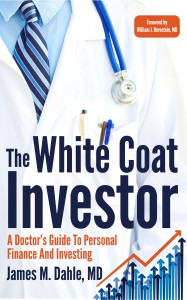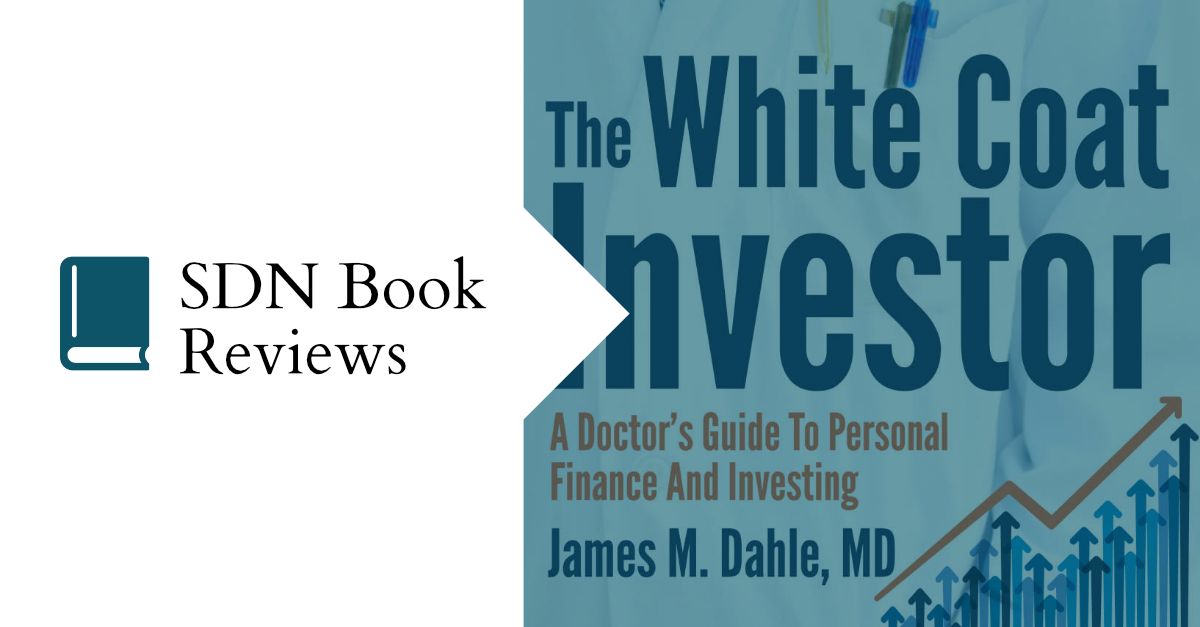Last Updated on June 24, 2022 by Laura Turner
I started residency on July 1st, but even before I started, the emails began. I’m not sure if this was the result of my email address being available online, or distributed via an agreement, or outright sold; regardless, financial advisors, life and disability insurance agents, and companies intent on managing my financial needs began emailing. Navigating the sea of seemingly well-intentioned people and corporations who wanted to provide me financial advice looked to be somewhat of a challenge. The sheer quantity left me wondering if I was missing something – I had already arranged financial basics, but I was hesitant to make any further decisions, overwhelmed by all the options.

Then something valuable happened: I began reading James Dahle‘s blog The White Coat Investor and soon after read his book by the same name. One of the first things I learned from the book was that I had every reason to be suspicious of all the people seeking to offer me financial advice. I also quickly realized how little I knew about the world of personal finance. More significantly, I realized that if I didn’t take the time to learn about it, it had the potential to take control of me. Like most physicians, I didn’t choose medicine for the paycheck, and so I have always tabled discussions of finances. I felt that to focus on money would detract from all the good reasons I became a doctor. I have come to see, however, that there is a paradox with personal finances. If I choose not to think about money and take a completely passive approach, then it will ultimately have more control of me, because the decisions I make or fail to make won’t be good ones.
The White Coat Investor is a 150-ish page exploration of this idea and more, and Dahle gets right to the point: many physicians are not particularly good with money. He outlines reasons for this, but the most compelling one to me is that there is a difference in having a high income and doing something useful with it. Physicians are in a unique situation, like athletes and musicians, because the high income they usually earn isn’t a result a financial acumen. This is different from many professionals, who are successful in their field due to skills that directly benefit them in personal finance. Doctors, on the other hand, don’t necessarily have a basis for how to handle their income, despite making a good salary.
Dahle writes directly to physicians, and the points he makes, one after another, are valuable and presented with a no-nonsense confidence. He notes at the beginning that much of the advice will be common sense, and much of it is. Quite a bit of it, though, is well above what I would call common sense. Even in a book this short, which I expected to be mostly basic principles (and which, to be honest, I thought I would know most of what he was saying) some chapters went very deep very quickly. But this also left me agreeing with Dahle: I need to do my work to learn more about this, because there’s quite a lot I don’t know.
The book addresses the breadth of personal finance basics without covering everything. Fortunately, it does cover most of what physicians (and really anyone, probably) should know about taxes, investing, retirement, insurance, and budgeting. The chapters on budgeting and saving were especially practical and probably the most high-impact for any reader. The chapters on investing and liability were a bit more esoteric, but perhaps would have been more accessible to me if I had more of a background. As I mentioned, some of the topics become complex relatively quickly.
Two pieces are worth distilling out here, which are also covered on the White Coat Investor blog (though the book makes a few points I haven’t seen anywhere on the website). The first, regarding the unique position doctors are in, is worth mentioning for all healthcare professionals. Dahle understands what very few other personal finance gurus do, or at least he gears his approach towards it: the principles of investing early, paying off debt, and avoiding taking on debt can only be applied so well to physicians. Medical school is a unique endeavor that doesn’t necessarily adhere to rules of debt and investments. Significantly, it sets doctors back with saving for retirement and paying off massive debt, which is quite possible to do with a higher salary, but is not the guarantee most people talk about. Dahle understands this and I appreciated his candid discussion of it.
Second, the book is more geared towards early career physicians than I expected, which brings me back to the emails I’ve been getting. Dahle talks about the costs of medical school and paying for it, and that chapter alone makes this an important read for medical students. Regarding residency, he offers practical tips for establishing the basics of insurance, income protection, building financial habits, and evaluating a potential financial advisor. There’s a temptation for students and residents to imagine a future in which all financial woes disappear, but Dahle cautions that habits follow salary. Unless one becomes adept early on at paying off debt, putting money to retirement, and taking personal finances seriously, the imagined future will be only that: imaginary.
I’d recommend this book to just about anyone in medicine, partly because of the valuable information and partly because it’s so readable. I didn’t expect to actually like reading it; I thought of it as a necessary evil for my personal wellbeing. But Dahle’s writing makes it fun; it’s straight to the point and written right to the target audience. I have no doubt that the return on investment will make it well worth it for anyone who chooses to buy it.
Author’s note: I received a copy of WCI at no cost for the purpose of providing an unbiased review. I have no financial relationship with WCI and have written this review of my own volition, and the opinions expressed are my own.
